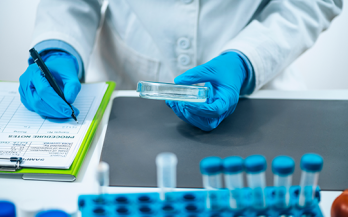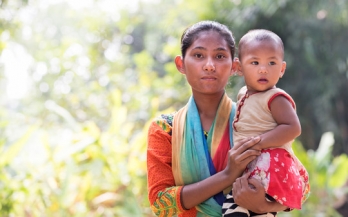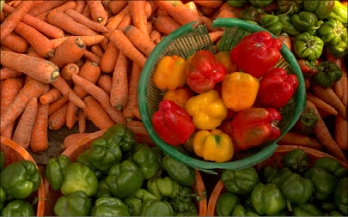This Guidance Document describes the various elements of quality management (QM) and quality control (QC) required in a laboratory setting. Many qualitative elements are required to analyse the various chemical parameters in food samples, particularly for micronutrient testing and for testing food safety and food quality substances.
This slide deck offers recommendations on the provisions of nutritious foods during the global COVID-19 pandemic and is part of a broader effort to develop an implementation support programme, supporting employers to implement Workforce Nutrition programmes.
With the Nutrition for Growth and United Nations Food Systems Summits scheduled in 2021, ambitious new multi-stakeholder commitments and actions are expected for better access to safe nutritious food. In 2019 the world was already off-track to achieve SDG2 - Zero Hunger - and the impact of the Covid-19 pandemic is expected to exacerbate this gap requiring stronger financing and actions for nutrition.
This paper summarises research conducted on the impacts of COVID-19 on LMICs’ food systems. It
reviews interventions implemented to support agri-food SMEs, including rapid responses to keep markets working, strategic recovery interventions to build back better, and systemic shifts to facilitate continuous learning and adaptation.
Our current food system is in dire need of change. To enable resilient, affordable, safe, and nutritious diets for the current and growing global population while restoring and safeguarding our environment, we need to think and act out of the box. GAIN, the Alliance of Bioversity and CIAT, and EAT joined forces to conduct a three-stage Delphi study, to identify and investigate game-changing innovations for improving diets and restoring environments by 2030.
The global food system is a major driver of environmental degradation, ill health, premature mortality and inequity. To enable resilient, affordable, safe and nutritious diets for the current and growing global population while restoring and safeguarding our environment, we need to urgently innovate food system solutions that work for both people and planet.
A survey of food system SMEs in 14 countries, aiming to assess the impacts of the COVID-19 pandemic and associated control measures on their businesses and their support needs, was undertaken by GAIN and partners, including the Scaling Up Nutrition (SUN) Business Network (co-convened by the World Food Programme (WFP)). This survey took place in October/November 2020, following one in May 2020.
This report looks at existing conceptual frameworks for food systems with a new lens that links food safety and nutrition and explores how such a perspective can be used to improve policy and programming.
The Food Systems Dashboard brings together extant data from public and private sources to help decision makers understand their food systems, identify their levers of change and decide which ones need to be pulled. The Global Burden of Disease study showed that unhealthy diets contribute to 11 million deaths per year.
How should the CGIAR's research programme be focused to make it as impactful as possible given the changes being faced by the world's population over the next 10 years? This viewpoint suggests a firm emphasis on research needed to unlock the potential of food systems to deliver improved nutrition, environmental sustainability and stronger livelihoods, with a focus on the tradeoffs and synergies therein.










